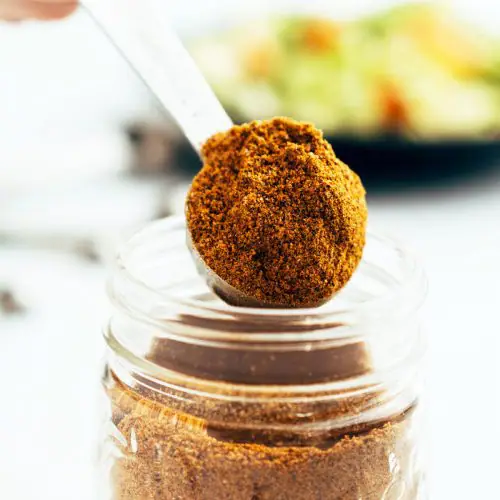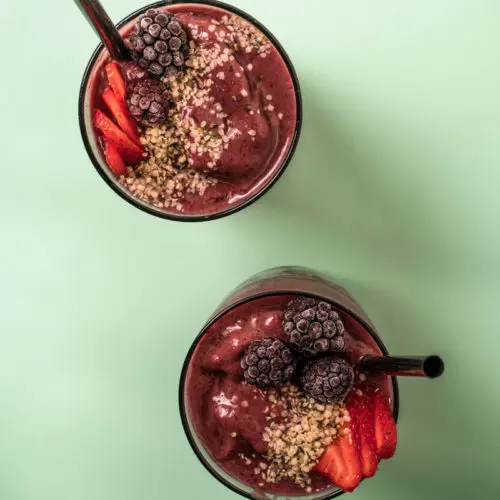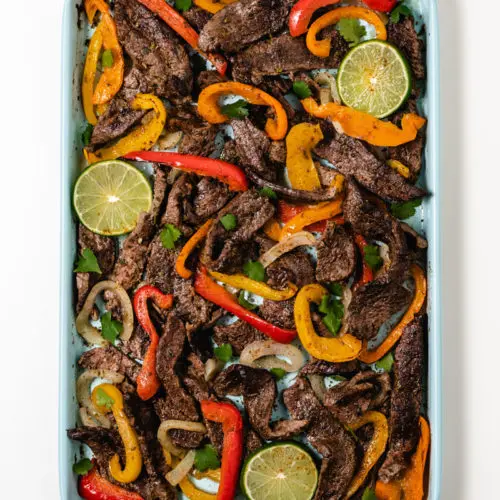Hello, friends! Welcome back to another week of the Ketogasm podcast, Easy Keto with Tasha! Today, we go head-to-head with one of our least favorite struggles, gaining weight on keto.
However, before we dive into the show, check out our new, exciting things happening in the Ketogasm world!
Keto: A Woman’s Guide and Cookbook
I’m so excited to share that my new book, Keto: A Woman’s Guide and Cookbook, is currently available for preorder and will be released on January 14, 2020! This book is a one-stop-shop; not only does it provide an in-depth guide to the keto diet, but it also includes a plethora of recipes designed specifically for keto! And it is entirely geared towards women! Check out what some of our readers are saying!
"This book has everything I've been looking for and more. I never fully understood the Keto diet until Tasha's book. It's not eating bacon and deep-frying in butter. It's finding what works for your body. Macros can be so confusing. But Tasha breaks it down without all the nutritional jargon. It was easy to understand and all of the free resources she provided were beyond helpful. I finally know how to make Keto work for me. Thank you so much, Tasha, for making a book that everyone can enjoy." -Nina
"I'm only about a third of the way through, but I have to give this book a five star review now. I've stumbled around and tried Keto before with some success, but this book explains everything and backs it all up with the research the author used. It's also easy to read and you feel like the author is your cheerleader. This is going on my shelf along with The Art and Science of Low Carbohydrate Living as my expert guides." -T Wunder
Keto: A Woman’s Guide and Cookbook works for both beginners and established keto veterans. This guide is full of no-nonsense, science-backed evidence to help you tailor your diet specifically to your needs. If you are a woman (or have women in your life), be sure to pre-order your copy today! And don’t forget to leave a review on Amazon once your book arrives; I would love for you to share how this book has helped you!
Gaining Weight on Keto
While no one wants to hear it, gaining weight on keto can occur. Some people believe it’s completely impossible and ludicrous to even suggest! Unfortunately, it is 100% a real possibility. However, just because it can happen doesn’t mean it will. After today’s episode, you will know exactly what to do if you ever find yourself gaining weight on keto.
Weight Loss Stall vs. Gaining Weight
If you tuned in last week, you’ll remember that we discussed different reasons that your weight loss progress has come to a standstill. These factors can contribute to weight loss stall:
- Not eating at a calorie deficit
- Changes in body composition
- Hormones out of whack
- Food-related inflammation
These examples can also contribute to you gaining weight on keto. Your body composition could be improving as your lean body mass increases, causing the scale to show a higher number than expected. Your weight could be difficult to manage due to underlying hormonal or inflammatory issues. However, the most common cause of gaining weight on keto is a lack of a calorie deficit.
Energy Balance and Gaining Weight
Energy intake is balanced with energy expenditure. Where energy intake refers to the calories you consume, energy expenditure is the calories you burn. If you are gaining weight on keto, it is not unlikely that your energy intake is higher than your body’s actual energy needs.
To put it simply: you are eating more calories than you are burning. In turn, these extra calories are going straight to storage.
Keto Macros
Protein: 4 calories per gram
Carbohydrate: 4 calories per gram
Fat: 9 calories per gram
Macronutrients play a major part in maintaining energy balance. This is because macros provide our energy. While protein and carbs provide the same amount of energy per gram, fat is over double!
There is nothing wrong with fat. Fat is a great thing; it is just extremely energy-dense. If you are consuming more than your body needs, it can lead to increased body fat. After all, the accumulated energy has to be stored somewhere if your body isn’t using it.
In order to target stored energy, your body has to be in a calorie deficit that your body is forced to tap into. To do this, utilize macros in a way that supports ketosis and the body composition changes you want to achieve. Eat an adequate amount of protein that supports your lean body mass. Keep your carbs low enough to support ketosis. Lower your fat intake to create a calorie deficit (or increase it to create an energy balance or calorie surplus).
Traditional Keto Macros
Originally, the keto diet was designed as an anti-seizure therapy for epileptic, drug-resistant children. The goal was to elevate ketone production. However, ketones are not responsible for causing weight gain or weight loss; rather, they are the byproduct of fat-burning.
Traditional keto macro levels utilize percentages similar to 5% carbohydrate, 20% protein, and 75% fat. The focus of these ratios is to keep ketone levels high, NOT to burn fat.
Fat Free-For-All
A lot of fat is consumed on keto. This is most likely due to the idea that calories don’t matter on keto or that someone should eat something purely because it is “keto” or that high fat is synonymous with keto. In turn, people end up force-feeding themselves extremely high-fat foods, which ultimately leads to gaining weight on keto.
It’s important to remember that fat can come from your diet or from your body. When your goal is weight loss, it is important to let some of that fat your body burns come from your body, not just your diet.
The key to weight loss management is energy balance. If you are gaining weight on keto, make sure you are not participating in a fat free-for-all and forgetting to maintain this balance. It can be very easy to overwhelm your energy balance if your fat intake is too high.
Bulletproof Coffee
If you’ve had any communication with the outside world recently, then you’ve heard about bulletproof coffee and it’s siblings, keto coffee and butter coffee. They are typically drinks with fat melted directly in them. While they are commonly marketed towards people on keto, they aren’t magic. What these drinks really are is extra dietary fat that suppresses the oxidation of your own fat tissue.
This issue occurs with a lot of keto recipes as well. While certain foods or recipes are technically considered keto because they are low carb, they won’t necessarily support your fat loss goals. Even keto foods can be stored as body fat if you’re consuming too much of them.
Instead of expecting high-fat food to be a magic weight-loss tool, focus on consuming high-quality foods and maximize the nutrient density of the ingredients you’re using.
How to Stop Gaining Weight on Keto
If you find that you’re gaining weight on keto, focus first on how much food you actually need to be eating. This will determine your body’s energy needs. You’ll also want to determine your lean body mass; this will ensure that you get an adequate amount of protein to support your muscles.
If you are a woman, I’ve created a Macro Calculator specifically for women. I highly recommend using this to determine your actual energy needs versus relying on traditional keto macro ratios. The customization will help you determine goals that relate to your body specifically.
If you’re eating at a calorie surplus, stopping the weight gain can as easy as three steps!
One: Determine how much you need to eat to support your weight loss goals
Two: Track and measure your food intake
Three: Watch the number on the scale go down
Yes, creating an energy balance and stopping weight gain really can be as simple as that!
Sudden Weight Gain on Keto
You’ve got your fat intake in check, so what gives? You may find yourself rapidly gaining weight on keto despite being aware of what you eat. Most likely, this rapid increase in weight is not an increase in body fat. Instead, it is most likely water weight. This could be due to increasing your carbohydrate intake.
As you restrict carbs, you burn through the stored carbs in your body. You use up your glycogen stores during this process, and your body dumps water. One gram of glycogen has at least 3 grams of water that accompany it.
When you deplete the glycogen, you lose some water weight as well. When you increase the glycogen, you also retain the water that accompanies it. If you consume higher carbs than your body requires for keto, you very well could be retaining water in your glycogen stores. This would cause an apparent weight gain, despite it just being water weight. Dropping your carb intake will also drop this water weight.
Resources
Keto Plateau & Weight Loss Stall [EP6]
Keto: A Woman’s Guide and Cookbook
What Are Macros?
Keto Calculator: Macros for Keto Women
Timestamp
Keto: A Woman’s Guide and Cookbook
3:39 - Gaining Weight on Keto
5:19 - Weight Loss Stall
6:12 - Gaining Weight on Keto
6:34 - Energy Balance and Gaining Weight
7:12 - Keto Macros
8:06 - Traditional Keto Macros
10:31 - Fat Free-For-All
13:21 - Bulletproof Coffee
14:48 - How to Stop Gaining Weight on Keto
17:13 - Sudden Weight Gain on Keto
Subscribe & Review in iTunes
Are you subscribed to my podcast? If you’re not, I want to encourage you to do that today. I don’t want you to miss an episode. I’m going on an epic podcasting spree and if you’re not subscribed there’s a good chance you’ll miss out on the new episodes. Click here to subscribe in iTunes!
Now if you’re feeling extra loving, I would be incredibly grateful if you left me a review over on iTunes, too. Those reviews help other people find my podcast and they’re also fun for me to go in and read. Just click here to review, select “Ratings and Reviews” and “Write a Review” and let me know what your favorite part of the podcast is. Thank you!

Hi, I'm Tasha–nutritionist, recipe developer, and multi-published cookbook author.










Leave a Reply